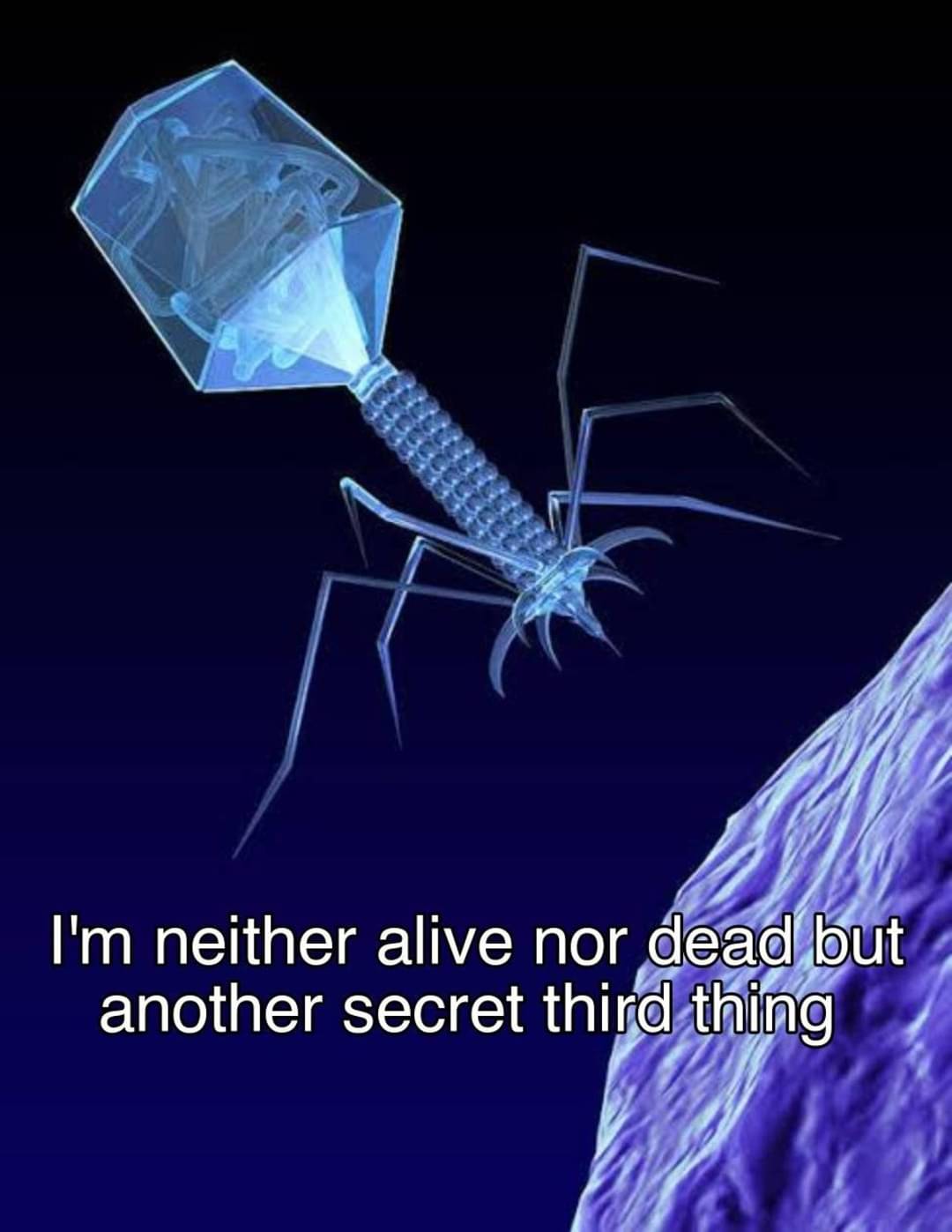this post was submitted on 01 Jun 2024
702 points (99.0% liked)
Science Memes
12399 readers
2278 users here now
Welcome to c/science_memes @ Mander.xyz!
A place for majestic STEMLORD peacocking, as well as memes about the realities of working in a lab.

Rules
- Don't throw mud. Behave like an intellectual and remember the human.
- Keep it rooted (on topic).
- No spam.
- Infographics welcome, get schooled.
This is a science community. We use the Dawkins definition of meme.
Research Committee
Other Mander Communities
Science and Research
Biology and Life Sciences
- [email protected]
- [email protected]
- [email protected]
- [email protected]
- [email protected]
- [email protected]
- [email protected]
- [email protected]
- [email protected]
- [email protected]
- [email protected]
- [email protected]
- [email protected]
- [email protected]
- [email protected]
- [email protected]
- [email protected]
- [email protected]
- [email protected]
- [email protected]
- [email protected]
- [email protected]
- [email protected]
- [email protected]
- !reptiles and [email protected]
Physical Sciences
- [email protected]
- [email protected]
- [email protected]
- [email protected]
- [email protected]
- [email protected]
- [email protected]
- [email protected]
- [email protected]
Humanities and Social Sciences
Practical and Applied Sciences
- !exercise-and [email protected]
- [email protected]
- !self [email protected]
- [email protected]
- [email protected]
- [email protected]
Memes
Miscellaneous
founded 2 years ago
MODERATORS
you are viewing a single comment's thread
view the rest of the comments
view the rest of the comments

The thing, though, is... you take a virus, put it in a petri dish by itself, and it does... nothing.
It doesn't have a metabolism, it doesn't look for a host, it doesn't do anything... it's just an inert clump of organic matter. (Then again, probably the same could be said for, say, spores. Or pollen. Or raw DNA or even RNA. Are those alive..?)
But plug it into a cell and... well, it sort of breaks apart, injecting it's RNA or DNA into the cell, and... that's it for that particular instance of the virus.
Sure, the cell will then take that genetic payload and unwittingly use it to fabricate as many copies of the virus as it can... but at that point the original virus instance is just an empty protein husk... is it still alive..? Does “being alive” maybe not apply to individual virus particles, but to this whole process..?
Maybe being alive is not just a binary, but a scale (or something more complex) where you can fit anything from crystals or prions to us and who knows what else, maybe whole ecosystems, maybe the Gaia concept of a living world...
But we humans certainly do seem to like our black and white binary choices, even if viruses might be a triangular peg we're trying to fit into either a round or square hole...
I agree, the point is that we need to define "alive" itself clearly which as you stated, is currently beyond our understanding.
If being inert constitutes as not living then yes, virus is not alive. Their "evolution" is not because of their doing/needs but rather due to their construction. In that case I think virus is more akin to a poison. The substance itself can be not dangerous, but due to a metabolism process inside a specific organism/cell, it becomes a dangerous substance. The side effect in this case is just so happens to make another copy of the virus. But this process is prone to mutation as their building block is quite prone to do so, and we get the "evolution".